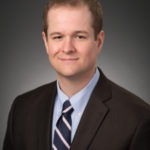PENSACOLA, Fla. (ABP) — A federal judge in Florida ruled Sept. 17 that a blessing at an athletic banquet did not violate her court order telling a school district to refrain from promoting religious activity at school events.
Following a day-long hearing, U.S. District Court Judge Casey Rodgers acquitted Pace High School Principal Frank Lay and Athletic Director Robert Freeman of criminal contempt of court. If convicted the two men could have faced up to $5,000 in fines and six months in jail.
In January Rodgers ordered school officials to discontinue practices promoting prayer at school-sponsored events, including graduation; planning or financing religious baccalaureate services; promoting religious beliefs to students in class or during school-sponsored events and activities and holding school-sponsored events at churches.
The injunction stemmed from a lawsuit filed in August 2008 on behalf of two students by the American Civil Liberties Union. It accused school officials, including Lay and school-board members, of using their governmental positions to promote their personal religious beliefs in public schools in violation of the First Amendment’s Establishment Clause.
Nine days later Frank asked Freeman to lead a blessing of the food at a banquet honoring people who contributed to the school’s new athletic field house. The ACLU alerted the judge, and she ordered the two men to face criminal contempt proceedings.
The case is the latest battleground in the culture war over school prayer. In June about 400 seniors at Pace High School stood up in protest of the ACLU at their graduation and recited the Lord’s Prayer. In May Lay spoke during a Sunday-night service at Olive Baptist Church in Pensacola, where he is a member and deacon, proclaiming that America was founded on Judeo-Christian principles and saying that every day he walks school hallways and sees kids who “need Jesus.”
During their Sept. 17 hearing, however, both Lay and Freeman testified that they acted as they did out of habit. After the hearing Rodgers ruled the two did not intentionally violate her temporary injunction banning school prayer.
Afterward, Lay spoke to about 1,000 supporters who held vigil outside the courthouse throughout the rainy day. “Above all I want to thank chief counsel, God the father, God the son and God the Holy Spirit,” Lay told the cheering crowd, according to the Pensacola News-Journal.
ACLU attorney Benjamin Stevenson told the newspaper that despite the ruling in Lay and Freeman’s favor, Judge Rodgers made it clear that “the unconstitutional promoting of religion by public school officials will not be tolerated.”
Sign up for our weekly edition and get all our headlines in your inbox on Thursdays
The lawsuit filed by the ACLU alleged a repeated pattern by school officials of “promoting and endorsing prayers at graduation ceremonies and other school events, of sponsoring religious ceremonies and holding official school events at churches.”
A teacher handbook introduced as evidence said all high-school personnel are expected to “embrace every opportunity to inculcate, by precept and example, the principles of truth, honesty and patriotism and the practice of every Christian virtue.”
“Parents, not the public schools, should be responsible for deciding whether their children receive religious education,” Benjamin Stevenson, staff attorney with the ACLU of Florida’s Northwest Region office, said in a press release. “Religious freedom is eroded when the government endorses any particular religious viewpoint.”
A supporter of Lay and Freeman, Ted Traylor, pastor of Olive Baptist Church in Pensacola, said the goal of the ACLU was to create a Jesus-free zone on public school campuses. Traylor, a former president of the Florida Baptist Convention who in 2000 was first vice president of the Southern Baptist Convention, helped raise money for a defense fund for the two men, which totaled nearly $70,000.
–Bob Allen is senior writer for Associated Baptist Press.














We seek to connect God’s story and God’s people around the world. To learn more about God’s story, click here.
Send comments and feedback to Eric Black, our editor. For comments to be published, please specify “letter to the editor.” Maximum length for publication is 300 words.